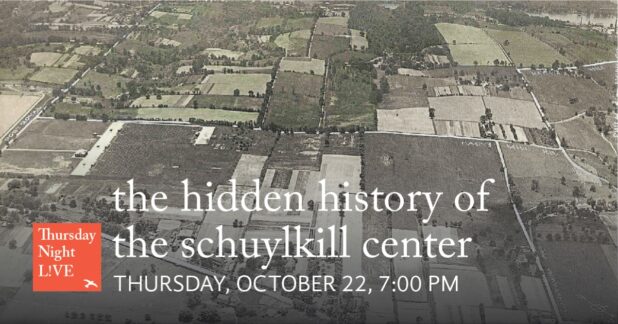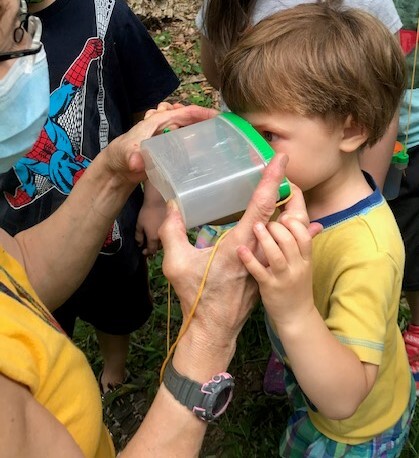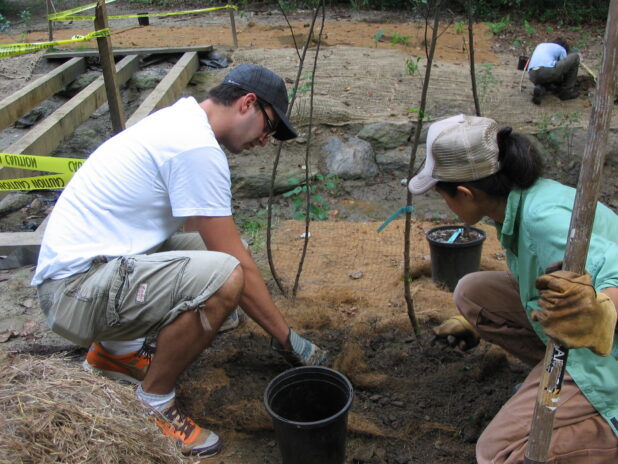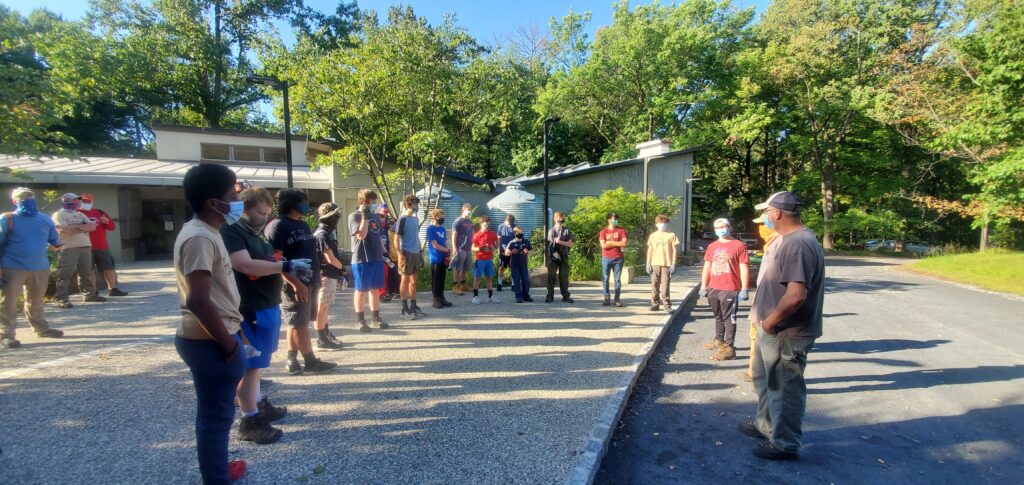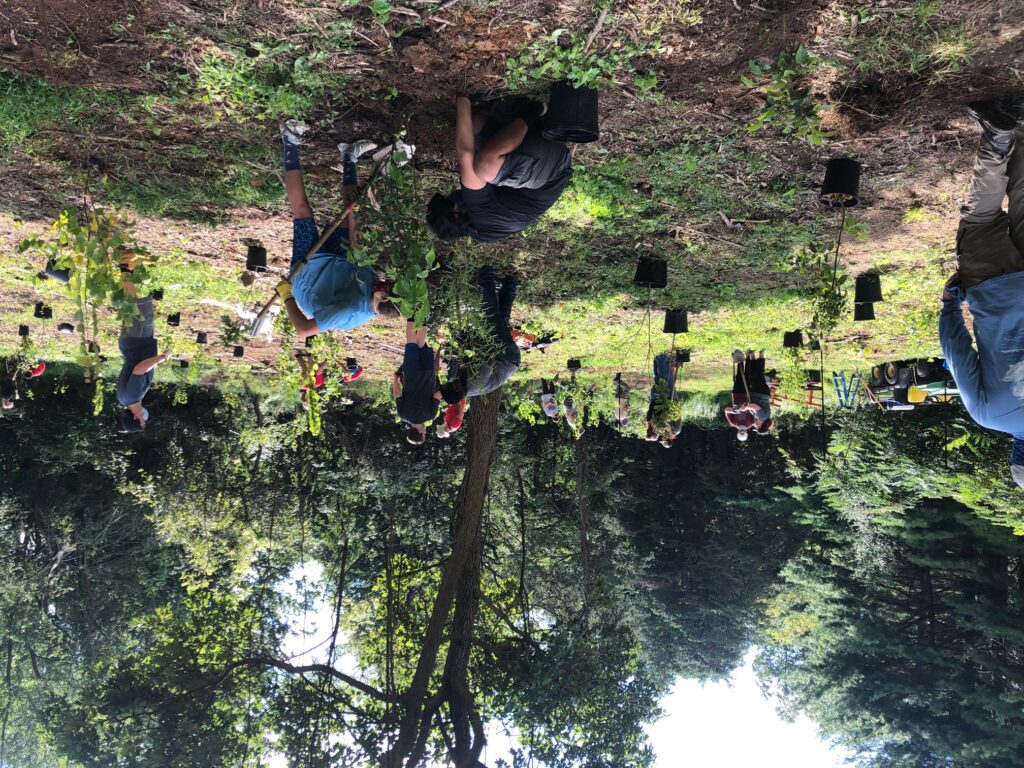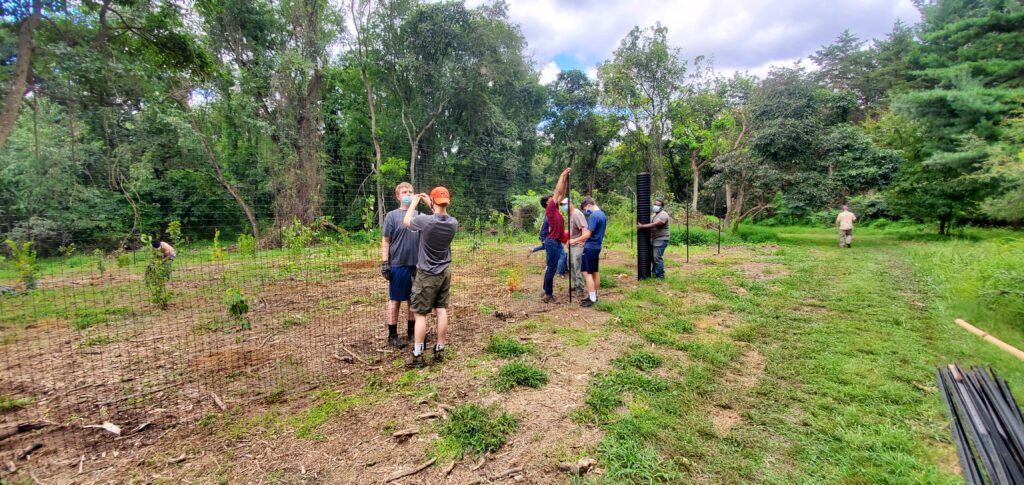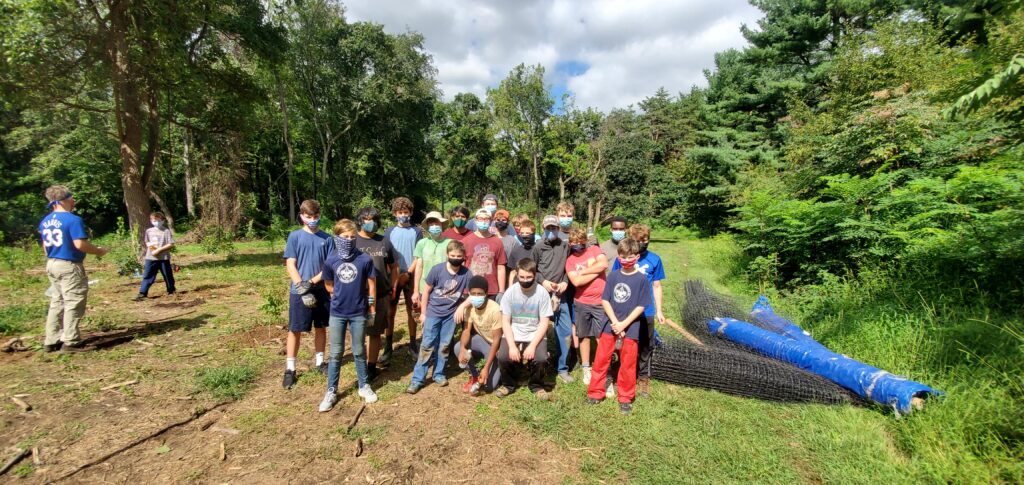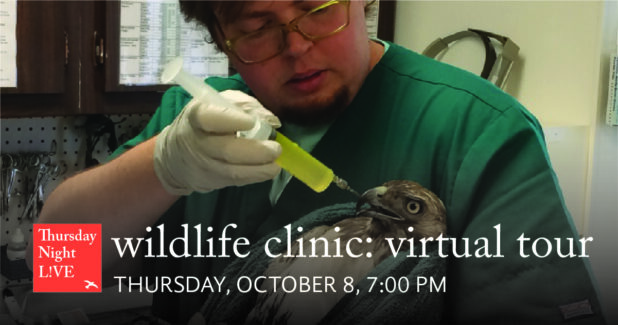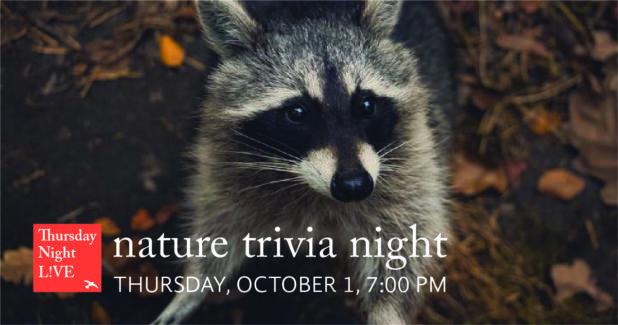By Jasmine Lee, Communications Intern
Fall migration, the large-scale movement of birds from their summer breeding homes to their winter grounds is part of an annual cycle that is undertaken by more than half of all the birds in North America. Unfortunately, it is estimated that in the U.S. alone, one billion birds die each year as a result of collisions with glass windows, walls, and other structures, with numbers typically spiking during migration months. At the Schuylkill Center and the Wildlife Clinic, warblers of all kinds, flycatchers, woodcocks, and even hummingbirds are passing through as they make their way down south for the winter.
As a student at the University of Pennsylvania obtaining my Masters in Environmental Studies, I have a special interest in birdwatching and ornithology, in addition to my career interests in conservation science. Back in March, I moved from West Philly back to my parents suburban New Jersey home due to the pandemic, and I was excited to spend some time closer to nature, as opposed to the bustling city streets. Using a recycled glass beer bottle, I fashioned a homemade bird feeder to attract some feathered friends for the spring.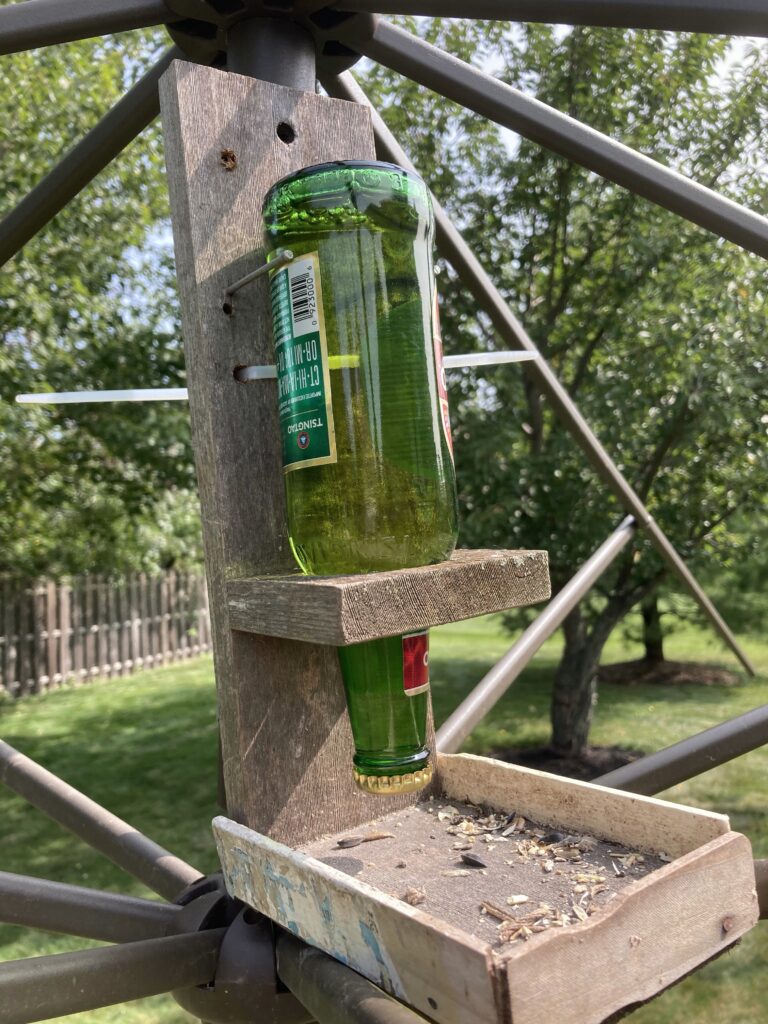
Homemade bird feeder: birdseed comes out from the bottle and into the tray.
Attaching it to the trees in our yard posed a problem, as the squirrels had easy access to the birdseed tray and would often scare off any potential bird visitors. I decided to use an old patio umbrella frame to secure the bird feeder so it was away from any branches where the squirrels could jump onto it.
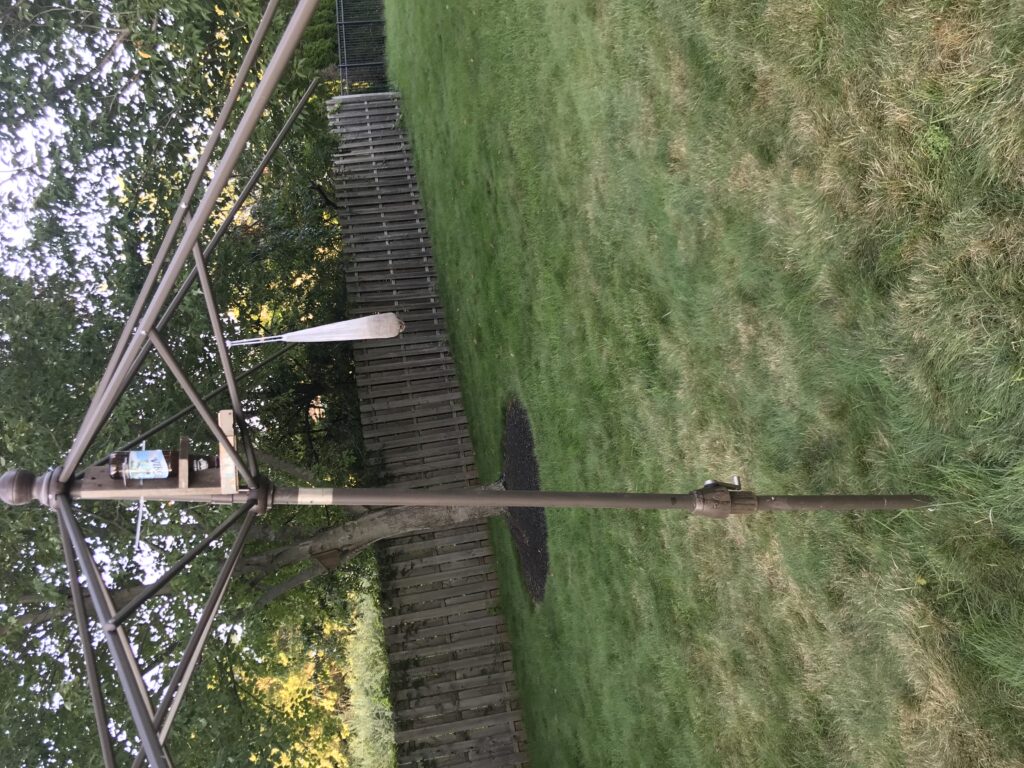
Feeder attached to umbrella frame. Bag of finch food hanging off to the side.
Within hours of setting up the frame and feeder, we saw a cardinal munching from the food tray. I stayed at our kitchen table all morning so I could watch the feeder through the window.
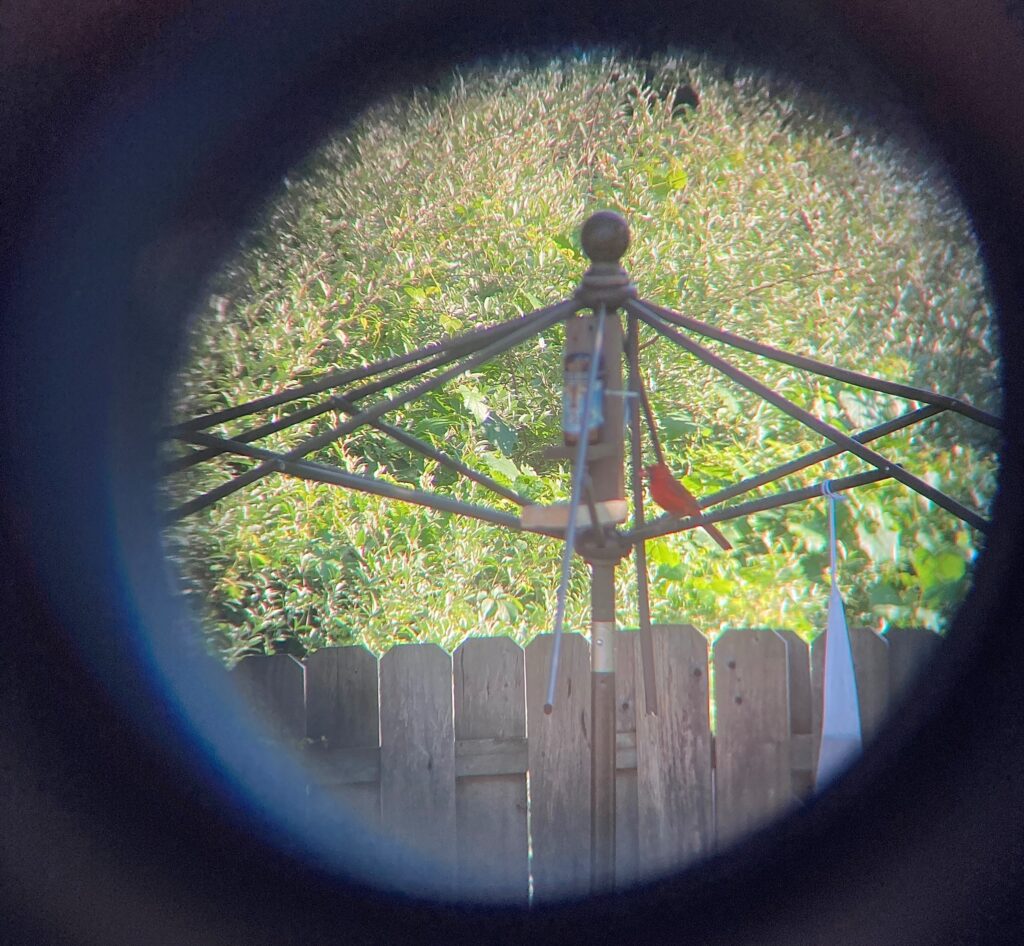
Northern Cardinal
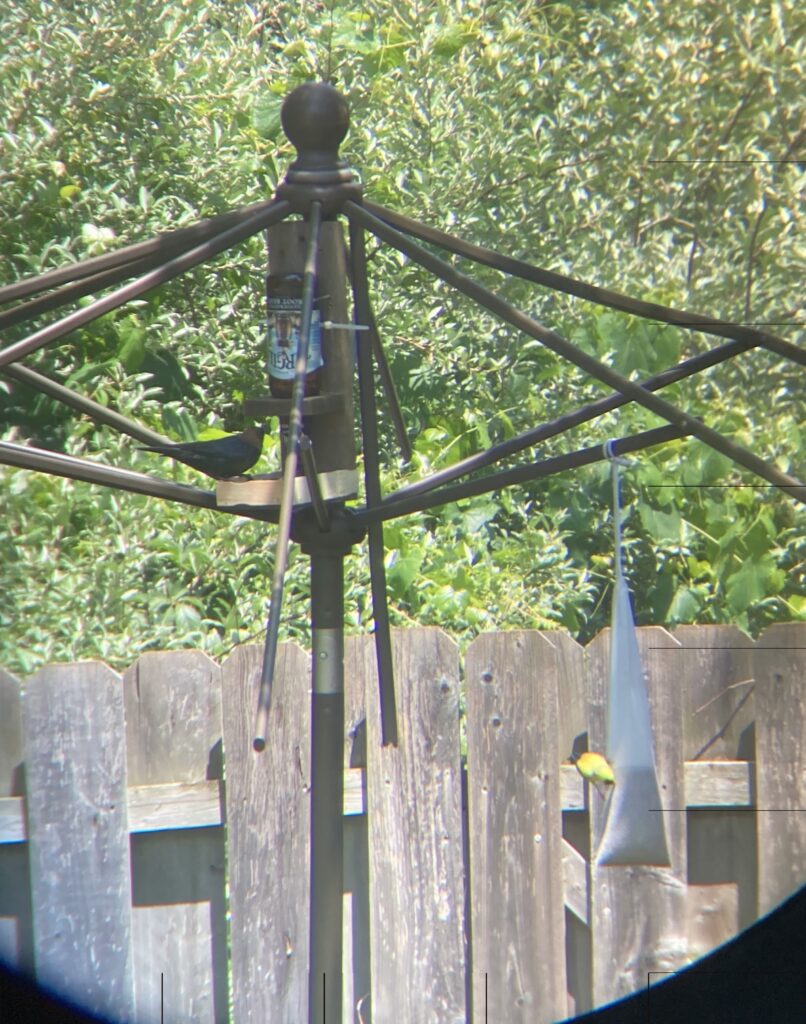
Brown-headed cowbird on feeder, American goldfinch on finch food bag
We did continue to fight the squirrels on occasion, when they tried to climb the umbrella pole. Eventually, we removed the bottle because it encouraged them to to climb up and gorge themselves. Now, my dad puts out a handful of seeds for the birds each day, but not enough to tempt the squirrels.
Now that it is October, the feeder is less busy, although we do still see the occasional fall migrant passing through. We are looking forward to springtime next year, when the migratory songbirds return.
As part of our #YearOfActionChallenge, the Schuylkill Center encourages you to take some actions to help protect our travelling feathery friends.
- Urge your senators to co-sponsor the Bird-Safe Buildings Act requiring public buildings to incorporate bird-friendly building designs and materials.
- Apply decals, window guards, uv-coverings or other collision preventing materials to windows to make glass more visible to birds and reduce the chances of flying into them.
3. Turn off the lights! Many birds migrate at night, and can become disorientated by bright artificial lights, increasing the chances they will collide with a window. Whenever possible turn off excess exterior lights and reduce interior lights at night, especially those on higher floors or in building atriums. Visit Lights Out- Audubon to learn more.
